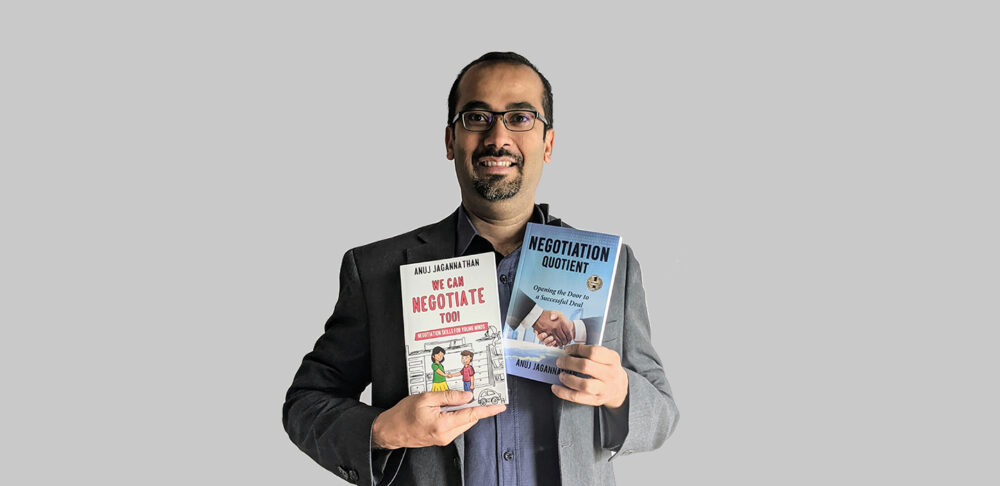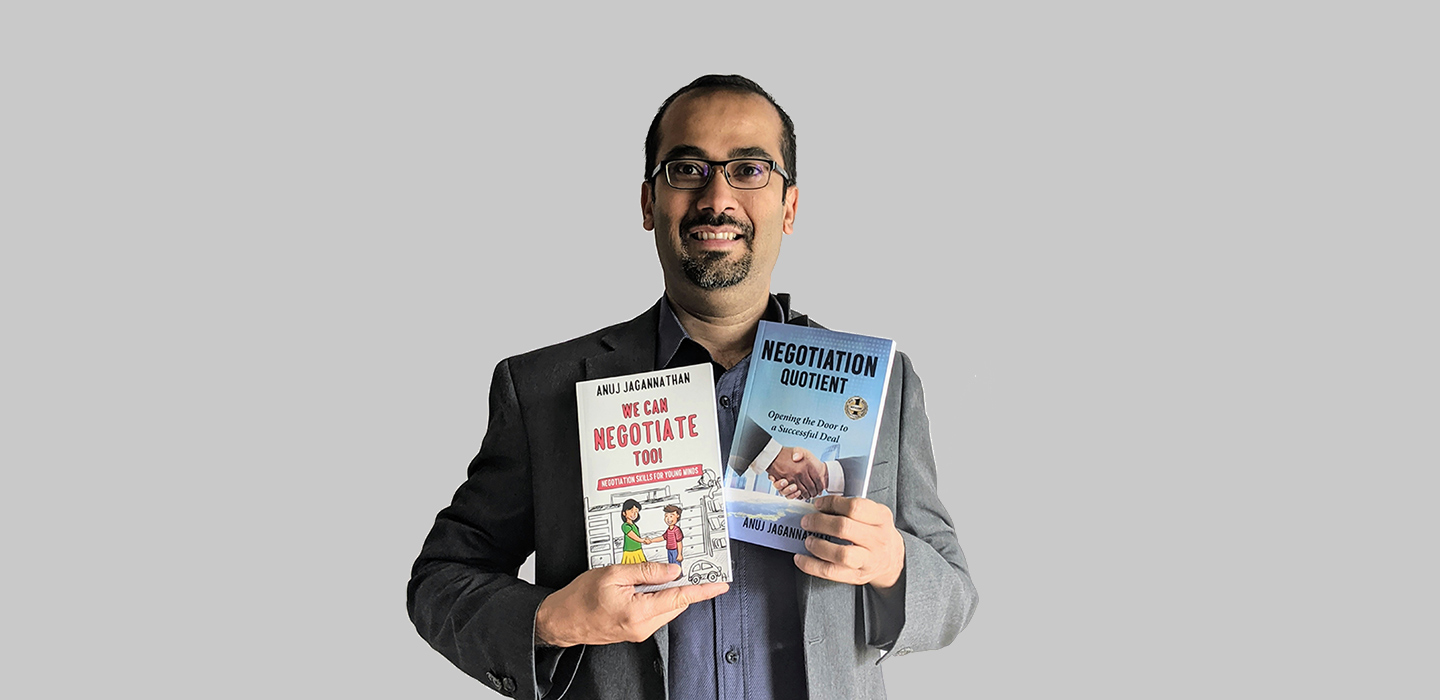The need to negotiate is present in everyday life. At home, we need to negotiate with family members to decide where to go for dinner. At the workplace, colleagues from different teams or departments have to negotiate with each other to gain favourable outcomes.
Taking part in a class about influencing skills to navigate and negotiate different relationship dynamics inspired Anuj Jagannathan (The UCLA — NUS EMBA 2015) to become a corporate trainer specialising in negotiation.
“At NUS Business School, the negotiation practices and role-play exercises left a big impact on me and a desire to know and grow more in this area,” said Anuj. Anuj likes the fact that a successful negotiation can lead to all parties leaving the table having achieved a “win-win”. “Also, an effective talk means the participants build a relationship for the long term,” he said.
So inspired was Anuj that he also went on to pen and publish Negotiation Quotient and WE CAN NEGOTIATE TOO!: Negotiation skills for young minds.

Anuj Jagannathan (The UCLA — NUS EMBA 2015) with his books
From classroom to corporate workshop
Upon the completion of the programme in 2015, Anuj decided to pursue his passion for negotiation and became a corporate trainer. He began to coordinate negotiation workshops for organisations ranging from start-ups to Fortune 500 companies in the US. He also studied further in the field of negotiation — completing the Negotiation and Leadership Certificate Program from Harvard Law School in 2017.
To promote his seminars, he tapped on his NUS network to spread the news. As the Chairperson of the NUS Alumni San Francisco Chapter, he also shared his knowledge at events organised by NUS bodies such as NUS Enterprise.
Then in May 2018, Anuj began preparations to write Negotiation Quotient.
“I had compiled a large volume of negotiation teaching material, including interesting real-life negotiation case studies, both personal and professional, that were relevant for everybody. As it was not possible to share all this information in my negotiation workshops, I decided to write a book,” he said.
Anuj also had a personal motivation behind wanting to publish his book — his parents are authors in the fields of linguistics, Hindi language and library science. “I have been inspired by their efforts in their respective fields. Having grown up among books, it was always a dream to publish my own.”
Negotiation Quotient was a success after its launch in October 2019, clinching top spot on Amazon for several weeks.
Encouraged by his book’s success, Anuj began to focus on his next book WE CAN NEGOTIATE TOO!: Negotiation skills for young minds.
One of Anuj’s life goals is to teach negotiation to children and young adults, and he felt that this second book would be an essential toolkit for them.
“Negotiation is an essential life skill that kids and young adults can apply in school, at home and when they begin their career, at the workplace. They are also the future leaders and learning these skills will help them to become better leaders,” he said.
Negotiation tips
Released in late 2020, Anuj says the feedback has been positive. “The comments I received serve as a great affirmation for me in this exciting journey,” he said. Encouraged, he is now preparing courses and workshops for young adults.
So, what are the top three negotiation insights would Anuj like to share with his Business School peers?
- Strive for all parties to walk away from a negotiation feeling that they have achieved a great result.
- Remember that the following attributes are crucial during a negotiation – the courage to ask, persistence, spontaneity, flexibility and optimism.
- Focus on behaviours that can make or break negotiations. Understand your personality and style as well as assess the other party’s style. Confidence is one such essential behaviour that can make or break a negotiation for you.




